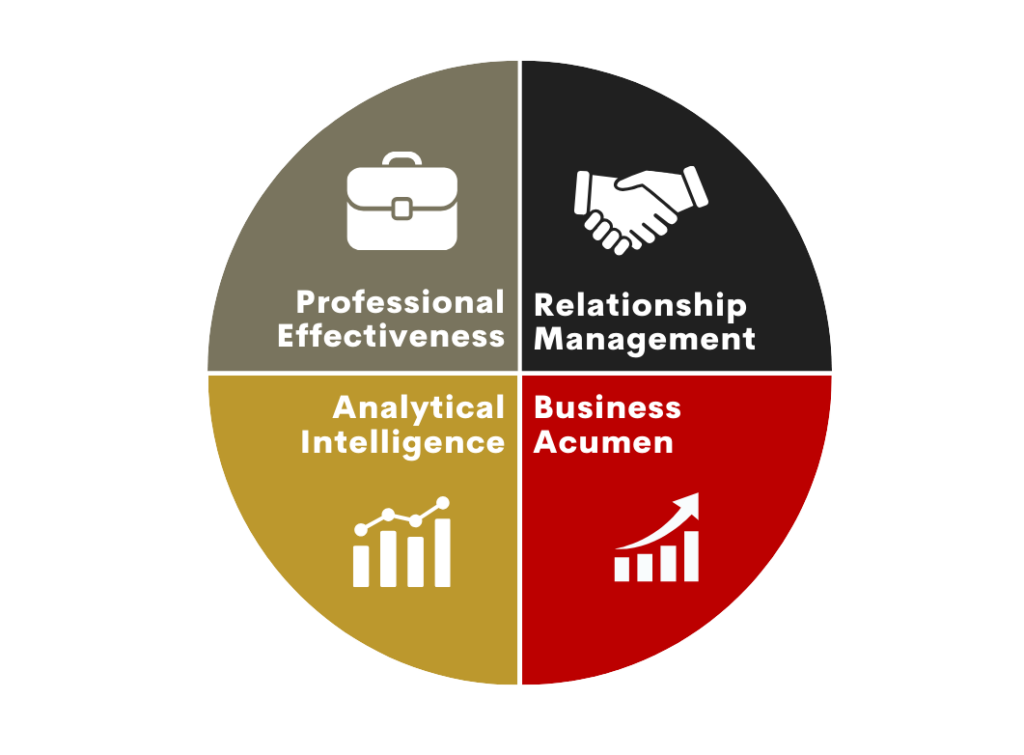5 Skills Every New Manager Needs To Succeed
Published by: American Management Association
As a superstar on your team, you’ve just been promoted and will take on management responsibilities for the first time in your career. Being a successful contributor and doing your job well has gotten you here and now it’s time to channel that talent and energy into a management position.
It’s normal to feel anxious about transitioning from an individual contributor to overseeing the work of others. Making this switch comes with a whole new set of challenges you’ve never been trained for. Beyond your own work, you’re now charged with helping others succeed and develop to help meet your organization’s goals. The truth is that the skills that made you a great team player won’t necessarily make you a great manager.
The good news: With practice, you’ll get comfortable with the basic skills needed to be effective in your new role. In this download, we’ll cover the five essential skills you’ll need to succeed.
Achieve the right results with and through others
01. Managers Need To Be Comfortable Playing A Variety Of Roles
As a manager, you will have to play many roles—wear different hats at different times—to add value. Let’s look at the typical roles you must play in order to achieve the right results with and through others.
Here are eight typical roles of effective managers:
- LEADER
Looks beyond the current day-to-day work requirements and determines where his/her organization needs to go. Leaders move their organizations forward by thinking strategically about the directions they need to take. They form relationships beyond the organization to build and maintain the reputation of the organization - DIRECTOR
Is able to define a problem and take the initiative to determine a solution. Using planning and goal-setting skills, the director determines what to delegate and ensures that individuals understand what they are being asked to do. - CONTRIBUTOR
Is expected to be task-oriented and work-focused, ensuring that his/her own personal productivity is attended to - COACH
Is engaged in the development of people, helping them to acquire and refine skills as well as to focus their motivation and commitment. - FACILITATOR
Fosters a collective effort for the organization, building cohesion and teamwork and managing interpersonal conflict. - OBSERVER
Pays attention to what is going on in the unit, determining whether people are meeting their objectives and watching to see that the unit is meeting its goals. The observer is also responsible for understanding what is important for the team to know and ensures that information overload does not occur. - INNOVATOR
Facilitates adaptation and change, paying attention to the changing environment, identifying trends that impact the organization, and then determining changes needed for the organization’s success. - ORGANIZER
Takes responsibility for planning work as well as organizing tasks and structures. He/she then follows up to ensure tasks are completed by attending to technological needs, staff coordination, crisis handling, etc.
Communication is the lifeblood of management
02. Managers Need To Communicate Effectively
Communication is the lifeblood of management.
With the transition from individual contributor to “getting things done through others,” communication becomes increasingly important. The quality of a manager’s communication affects his/her ability to:
- DELEGATE AND ASSIGN WORK
- COACH
- EVALUATE PERFORMANCE
- PROVIDE LEADERSHIP
The list could go on…
Without effective communication, the “right things” simply won’t get done successfully in the long run. Without effective communication, a manager can’t build a motivational work climate. Without effective communication, there simply is no leadership. Most of the roles that managers have to perform absolutely require effective communication. Even though we have all grown up communicating, doing it successfully as a manager can require effort and practice. It is a process that can get off track in a number of places.
4 QUALITIES OF EFFECTIVE COMMUNICATION
They’re common sense but people don’t necessarily practice them.
Clarity—Is your communication specific and descriptive?
Remember, if a statement is unclear, its accuracy can’t be determined and may leave the receiver with questions.
Accuracy—Is it true?
If it is an opinion or assumption, is it labeled as such?
Completeness
Is all necessary information conveyed? Are the emotional elements of the issue communicated, as well as the task aspects?
Timeliness
Is the message delivered, received, and understood within a time period that will allow appropriate response?
Managers who delegate effectively have
direct reports who are more capable and enthusiastic
03. Managers Need To Delegate Effectively
Delegation is the allocation of a job or task along with some defined amount of authority to accomplish the task. Managers who delegate effectively have direct reports who are more capable and enthusiastic. Their direct reports are seen as competent and committed to taking on more projects or tasks, thereby freeing up the managers’ time to work on tasks that cannot be delegated.
QUICK QUIZ: YOUR COMFORT LEVEL WITH DELEGATION
You’ll gain insight into your skill and comfort level delegating work to others and gain awareness for areas that you can develop.
When I am overloaded with work, I look to my direct reports to take on some of my work.
Always | Usually | Sometimes Never- After I have delegated a project, my team members know who is leading the project and what their own level of authority on the project is.
Always | Usually | Sometimes Never - When I delegate work to any of my direct reports, I provide them with all the information I have on the subject.
Always | Usually | Sometimes Never - In my organization, delegation is perceived as an opportunity for growth and recognition. I consider the skills and knowledge of my direct reports before assigning them a project.
Always | Usually | Sometimes Never
SCENARIOS WHEN DELEGATING IS A GOOD IDEA
- When tasks are closely related to the work employees are already doing
- When tasks have clearly defined procedures and end results
- When tasks are repetitive and fit into the normal workflow
- When tasks enable employees to develop themselves
SCENARIOS WHEN DELEGATING IS NOT A GOOD IDEA
- When the task falls clearly within the manager’s personal responsibilities
(e.g., conducting a performance appraisal) - When the successful completion of the task by the employee will require more assistance than the manager can give
- When the risk of failure outweighs the benefit of delegating for development
(e.g., when your job is on the line) - When the assignment might place the employee or the organization at risk
- When the task is not clearly defined or uncertainty exists
- When the task falls clearly within the manager’s personal responsibilities
THE DELEGATION CONVERSATION
Explain the Assignment: Be sure to explain the assignment, using an appropriate level of detail to fit the employee’s development level.
Specify the importance of the assignment, the standards by which the final outcome will be judged, and the reason that he/she was chosen.- Test for Clarity: One of the primary reasons delegation goes off track is misunderstanding between tvhe manager and the employee. After explaining the assignment, check to ensure that you have been clear and that the employee has the same picture of the task as you do.
- Identify Potential Problems: Work with the employee to identify and discuss hindrances to the successful completion of the assignment. Ask the employee what might get in the way, and be prepared to help him/ her do some proactive problem solving right then and there.
- Identify Milestones: Employees sometimes feel that a manager supervises too closely after delegating because the manager doesn’t have confidence in them. The truth is that it’s often the case that the manager is staying in close contact to ensure that the project is on track. One way to avoid all the negatives of over-supervision and to keep track of the status of the assignment is to borrow a tool from project management methodology and build in milestones or checkpoints.
- Recap: To further ensure clarity, ask the employee to summarize his/ her understanding of the assignment, problem contingencies, and checkpoint schedule.
We all need feedback—it is essential for our development.
04. Managers Need To Give Useful Feedback
We all need feedback—it is essential for our development. As a managerial tool, it not only helps employees to recognize what they need to do differently, but it also reinforces what they are already doing well. Managers, both new and experienced, sometimes don’t provide as much—or as useful—feedback as they should.
HOW YOU SAY IT MATTERS
What makes feedback effective is its usefulness to the person receiving it. As a manager, you are providing the feedback to achieve some outcome— either to reinforce a positive behavior and make it more likely to occur again, or to change a behavior to make it more useful. If you provide feedback in a way that makes it difficult for the employee to hear, or if you say it in a way that pushes the employee’s emotional buttons, then the likelihood of achieving your desired outcome will be diminished. The employee:
- Won’t believe it
- Will be threatened by it
- Will not see a reason to change
It is in your self-interest to provide feedback in a way that the other person can hear and accept it.
GIVING FEEDBACK IN THE MOMENT
It can be difficult to remember the rules and guidelines for useful feedback when you are in the moment and emotionally engaged. It can be helpful to use a memory tool to help craft feedback “on the fly”:

GIVING POSITIVE REINFORCEMENT
Reinforcing feedback focuses on and identifies what the person has done well. We all need a pat on the back. Your reinforcement of good behavior lets direct reports know that you’re observing something positive. Direct reports will feel more secure and motivated knowing you’re aware of their efforts.
Reinforce good behavior by acknowledging it. A positive comment about behavior will make it more likely to occur again.
THE THREE MOST IMPORTANT PRINCIPLES TO REMEMBER WHEN EXPRESSING APPRECIATION:
- Describe the desired behavior in specific terms.
- Explain why the behavior is helpful.
- Actually express thanks. Don’t assume they know you feel a certain way. Say it!
Effective performance management is the avenue for
achieving organizational goals that impact the business’s bottom line.
05. Managers Need to Effectively Manage Performance
Managers must be able to help their direct reports perform at a high level. The consequences of not being able to are serious— business goes away; operations are downsized, right-sized, or otherwise affected; plants close; organizations disappear. Even organizations that have discovered a strategic advantage that gives them a leg up on their competition maintain it only through the performance of their workforce.
From a personal perspective, the consequences of not managing performance can be devastating to a manager. A manager whose unit is “just getting by” is a prime candidate to lose resources, thereby limiting the potential for improvement.
Effective performance management is the avenue for achieving organizational goals that impact the business’s bottom line. By mastering this important skill, you will be able to create a greater alignment of the organization’s interests and those of the individual employees.
The greater the alignment, the greater the success for both the organization and the individual.
Performance Management is NOT something you do once a year.
FIVE FOUNDATIONS OF SUCCESSFUL PERFORMANCE MANAGEMENT
Hint: Performance Management is NOT something you do once a year.

Conclusion & Resources
8 ROLES EVERY SUCCESSFUL MANAGER NEEDS TO PLAY
Here are the typical roles you must play in order to achieve the right results with and through others.
- LEADER
Looks beyond the current day-to-day work requirements and determines where his/her organization needs to go. - DIRECTOR
Is able to define a problem and take the initiative to determine a solution. - CONTRIBUTOR
Is expected to be task-oriented and work-focused, ensuring that his/her own personal productivity is attended to - COACH
Is engaged in the development of people, helping them to acquire and refine skills as well as to focus their motivation and commitment. - FACILITATOR
Fosters a collective effort for the organization, building cohesion and teamwork and managing interpersonal conflict. - OBSERVER
Pays attention to what is going on in the unit, determining whether people are meeting their objectives and watching to see that the unit is meeting its goals. - INNOVATOR
Facilitates adaptation and change, paying attention to the changing environment, identifying trends that impact the organization, and then determining changes needed for the organization’s success. - ORGANIZER
Takes responsibility for planning work as well as organizing tasks and structures.
4 QUALITIES OF EFFECTIVE COMMUNICATION EVERY MANAGER MUST MASTER
They’re common sense but people don’t necessarily practice them.
Clarity—Is your communication specific and descriptive? Remember, if a statement is unclear, its accuracy can’t be determined and may leave the receiver with questions.
- Accuracy—Is it true? If it is an opinion or assumption, is it labeled as such?
- Completeness Is all necessary information conveyed? Are the emotional elements of the issue communicated, as well as the task aspects?
- Timeliness Is the message delivered, received, and understood within a time period that will allow appropriate response?
5 FOUNDATIONS OF SUCCESSFUL PERFORMANCE MANAGEMENT
Partner with your direct reports
They’ll feel they’re working with you, not for you, and you’ll both be more successful.- Clarify expectations. Don’t leave comments or comments or conversation up for interpretation. The greatest gift you can give someone is clarity.
- Make open communication an ongoing process. Make the time to interact with your direct report at least once a day.
- Schedule regular performance conversations. Performance management shouldn’t consist of an annual appraisal…It’s an ongoing process.
- Provide regular feedback and coaching to help employees develop. Adult learners need to hear things many times and in many different ways. Communicate your messages regularly.
ENSURE YOUR ONGOING SUCCESS AS A MANAGER WITH AMA/MCE’S TOTAL PROFESSIONAL

What to Explore Next
Management Centre Europe
Management Centre Europe (MCE) is the leading provider of International Management Development in Europe, Middle East and Africa. Founded in 1961, MCE is part of the American Management Association’s (AMA) Global Network. We inspire more than 1,000 organizations and over 10,000 managers and leaders through our Open Enrolment Training Programmes and our Customized Learning Solutions each year. We have been in the EMEA region for more than 58 years and our team of Learning and Development professionals can support you to achieve the impact you need at individual, team and organizational levels.











